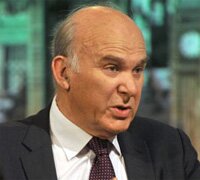The first local internet general election
For the third general election in a row, the run-up is seeing numerous meetings and articles asking whether this election will be the first internet general election.
However, much – in fact, nearly all – of the discussion falls into two traps which are common across political journalism in the UK. First, an undue focus on the central, national picture and, second, an undue focus on the novel.
Ask those involved in organising internet campaigning for any of the major parties about what really matters and you’ll get two answers repeated. They repeatedly – and rightly – emphasise the importance of the internet for local campaigning and they also emphasise its importance for the equivalent of plumbing and sewage systems in a political party – that mostly hidden infrastructure which is vital to effective operation. continue reading… »
Boris’s climate and transport strategy fails miserably
The Mayor of London’s climate change mitigation strategy (launched Monday) rightly recognises that to get to his target of a 60% reduction in carbon emissions in London by 2025, government policy and money will have to play a major part.
But he’s scaled back reductions made through his own programmes to the extent that government policy plus mayoral policy still leave a 5m tonne CO2 gap in what needs to be done.
In particular, the Mayor’s energy efficiency programmes rely on a major injection of government funding beyond 2012.
For example:
- He is relying on attracting £200m of public money to take forward his homes energy efficiency programme.
- He is also reliant on national policy to introduce new measures to help householders and businesses finance energy efficiency improvements.
Both Labour and Conservatives are failing on housing
I was shocked when I found that eight years of Ken as Mayor and ten years of the current government saw the housing waiting lists double and house prices spiral out of control.
But with Boris now in office and cuts to the budget threatening to wipe out the affordable housing programmes, this bleak story looks set to get even worse.
In my recent report, Coming home to roost, I showed how the policies of two Mayors of London have failed to deliver secure, safe, comfortable housing.
In London, social housing waiting lists have grown by 82% as the stock of homes actually decreased. Right to Buy continued unabated until very recently, with 85,000 homes off the stocks. In the same decade, we only managed to build around 55,000 new homes.
There are now over 330,000 households waiting to be allocated a place that suits their needs – that’s roughly 10% of all the households in the city.
continue reading… »
Why we should support Brown’s push for a constitution and AV
contribution by Lisa Harker
Most of the reaction to today’s speech to the Prime Minister’s ippr speech on constitutional reform has taken the view that it was an exercise in political manoeuvring.
Far from ‘new politics’ it is old Gordon, out to ‘wrong foot’ and create ‘dividing lines’ between Labour and its opponents. Even those more sympathetic to the need for reform, have adopted a weary tone that these ideas, coming so late in the day, are going to make very little difference.
Some of this is fair enough. Laying out a new ‘constitutional settlement’ would have had much more moral force if the Prime Minister had made it when he was new to office and secure in power. Coming now, in the dog days of this parliament with the public still fuming at the expenses scandal, it smacks of expediency.
Of course, the real pity is that when he took over at Number Ten, Gordon Brown did have constitutional reform at the top of his agenda for change. The problem was that he didn’t act on it.
continue reading… »
Thoughts from Progressive London
Today’s Progressive London conference was packed out. And by that I mean packed out. Clearly that means there is a hunger amongst lefties to find ways to hit back at the right and find out what people are doing.
Our session on new media and politics was very enjoyable, and Clifford Singer, Andy Newman, Alex Smith and Helen Gardner all made excellent points, I thought.
But let’s look at the bigger picture here. The problem with Progressive London is that it is billed as a broader left response to Conservatives in London. And while it does bring together a wide tent (too wide in some cases), it ends up merely being Ken Livingstone’s re-election vehicle.
continue reading… »
The fruits of people power
Just over seven years ago, I got an invite to a meeting which some local people had organised in the ward where I was a councillor.
The organisers of the meeting were worried about the way that their area was changing, as a result of buy to let landlords buying up family homes and renting them out.
This led to increasing amounts of rubbish in front gardens, lack of parking, some homes where ten or more people were crowded in to maximise rental income, and others where tenants received an appalling service from their landlord.
About thirty people turned up to that meeting. They argued that landlords should have a duty to ensure that their properties were kept neat and tidy, that bad landlords were destroying the community and that the council should take action to sort this problem out.
continue reading… »
What they won’t tell you about Labour-run councils
Here’s a nice example of sucking up to Tories reporting the research findings that your audience wants to hear: Ben Page, CEO of Ipsos-Mori, writing on Conservative Home:
If you want to have residents who are satisfied with their council and think they get value for money, get Conservatives to run it for you. That is one of the headline findings of Ipsos MORI’s latest report on local authority performance.
Harry Phibbs claims that this “report shows Conservative councils perform best”.
But that’s not what the actual IPSOS-Mori report found:
continue reading… »
Productivity in public services: how the Tories lie
contribution by Margin4Error
Last week the Conservatives launched a new line of attack on the public sector. Phillip Hammond, the Shadow Chief Secretary to the Treasury, told Policy Exchange that the public sector was inefficient.
He said that in the last twelve years its productivity had grown a lot slower than the private sector. Then he concluded that had it kept pace we could have had the same services for £60billion less tax each year.
There are a lot of inferences intended. One is that Labour is wasteful. Another is that the private sector is more efficient than the public sector. Another is that voters can expect something for nothing from the Tories, or “more for less” as the official line goes.
But the most important inference is that the Tories can cut the deficit by cutting waste rather than by raising taxes or sacking nurses.
£60billion?
So let’s start with the £60billion annual saving that Labour cruelly denied us.
First of all I have to acknowledge a weakness in my article. I can’t break down their figures for you. I can’t break them down because I don’t have them. In fact no one seems to.
The Conservatives don’t appear to have referenced their assertion anywhere. As such, other than the mouth of Phillip Hammond, we don’t know where £60billion came from.
That problem aside, we are talking about a fairly modest rise in productivity over twelve years.
continue reading… »
Saving labour
Tomorrow night, tireless leftie grafter John McDonnell speaks at a London meeting called to kick off a fightback against public sector union Unison’s vicious witchhunting of popular anti-Labour union activists.
Yours truly will be in close attendance, as will everyone who thinks the future should include a representative Labour party and democratically-run trade unions (I trust I won’t be the sole attendee).
Right now, we have neither a representative Labour party, nor democratically-run trade unions – particularly in Unison’s case.
Unison’s New Labour luvvn’ bureaucrats have lined up against shopfloor activists and members who believe that this Labour party has betrayed working people and that the union must stop funding the party as a result. Things ain’t been pretty for a while.
Some of Unison’s unelected officials appear at employment tribunal next week, accused of running a very nasty campaign to remove activists who insist that Unison cuts its links with Labour.
As I wrote earlier this year, these activists:
“have long held that Unison ought to cut the Labour party loose – and that’s a line that is making sense to more union members than Unison cares to see. The government’s war in Iraq, various doomed love-ins with big business, privatising of public services, and failure to repeal this country’s draconian anti trade union laws have stirred a poisonous – and possibly permanent – loathing for this Labour government in the average union member.”
So it is that Unison members are demanding an independent inquiry into allegations that union officials are actively jettisoning people who dare to dump on Labour’s record.
I will report back from tomorrow’s event. Suffice to say for now that Labour party members dying for reelection should take note. Unison has a million members and they’re very aware that their hardest-working shopfloor representatives are getting the boot for going off New Labour message.
The good people of the grassroots are buzzing with it. Throw them a bone and you might get something back. Do the math, if you will.
The public sector rich list
The TaxPayers’ Alliance released its annual Public Sector Rich List today, always a sure-fire hit with the media. Among the statistics highlighted by the TPA – and quoted enthusiastically by journalists – are:
There are 8 people in the public sector who earn more than £1 million a year, compared with 4 people last year.
There are 35 people in the public sector earning above £500,000 a year compared with 21 last year.
There are 120 people earning above £250,000 a year compared with 88 last year.
Which is odd, because, in the small print beneath these statements, the TPA says the real reason for the increases is that it has surveyed more staff – by investigating more quangos and making more Freedom of Information requests. “The figures are therefore not directly comparable with previous editions of the Rich List,” the TPA cautions.
So why compare them then? And if it is going to compare them, why not be consistent and include inconvenient data, such as:
The average total remuneration of those included on the list is almost £225,990 per annum, compared with £240,000 per annum last year. Excluding staff in the newly nationalised banks, this year’s average is £209,151 – down 13% on last year.
Removing the nationalised bankers also brings the number of Rich List members earning more than £1 million a year down from 8 to 2 – ie half last year’s number, despite the larger survey group. Surely a cause for both TaxPayers’ Alliances to rejoice!
continue reading… »
With Labour on the estate
This is the second in a series of interviews (first one’s here) with people in West Lancashire who rely on public services.
The people in this article live on the rundown New Church Farm estate in Skelmersdale, just outside of Liverpool. Two – Neil Furey and Barry Nolan – are also local Labour councillors.
Excerpt:
“The broken gate we’re peering through leads to a backyard that is littered with torn rubbish bags, old takeout boxes, rotting food and chicken bones, abandoned toys, broken pipes, smashed concrete, and several hundred empty and crushed Fosters’ cans.
‘This is private landlords,’ Furey says. ‘They rent the places out to Polish and Portuguese immigrants (who work as pickers and packers on the farms around Skem).’
Nolan says that the estate was based on a Cornwall fishing village concept – a maze of small streets, hidden doorways and houses fronting walkways, with cars being parked away from homes. Unfortunately, he says, ‘the main thing that the design built into the estate was crime.’
The BNP knows enough to tap into this: this very morning, a local newspaper is running a story by a BNP member who claims Skelmersdale estate designs prove that weird (read foreign) architectural concepts baffle locals and lead to distress and isolation.”
Read the whole story.
Needing real Labour: Skelmersdale
Reposted – the site that this post links to was down on Friday.
Over the last little while, yours truly has been spending time talking to people who need public services, but feel (and often are) excluded from the lofty political circles that will decide the future of those services.
From today, we’ll publish excerpts from these interviews and links to the full articles on a new site.
First up is the West Lancashire town of Skelmersdale – an old ‘new town’ badly in need of regeneration. Poverty is an issue for some Skem locals. Fury at their powerlessness is another. Everyone I spoke to was a Labour voter. I spoke to some Labour councillors. Tory councillors have refused to talk to date.
(Regeneration plans for Skelmersdale have been threatened by Everton and Tesco plans for a stadium and retail park in nearby Kirkby (Skelmersdale is only ten minutes’ drive from Kirkby). West Lancashire borough council wanted to regenerate Skelmersdale by building Skelmersdale a retail centre of its own, but was unlikely to do so if a bigger retail centre was built in Kirkby. (Last week, the government rejected the Everton and Tesco plans)).
Below is an excerpt from the first of four interview sessions with Skelmersdale locals – everyday people who feel they’ve been abandoned by the political process:

Hazel Scully
Long time Skelmersdale council housing tenant Hazel Scully is pleased that West Lancashire borough council is planning a facelift for run-down Skelmersdale town centre – there’ll be a new high street, shops, cinema, library, sports centre, swimming pool, housing, and a lovely landscaped park to replace the spooky weedfest along the River Tawd that presently serves as Skelmersdale’s main municipal space.
It is just a pity, says Scully bitterly, that she won’t have much chance to enjoy the improvements.
She and everybody else who lives on the town-centre Firbeck and Findon estates will be removed from view as part of the upgrade. The council wants to demolish the estates, shift the occupants elsewhere in the borough, and build homes for private sale in place of Firbeck and Findon.
‘We don’t fit in,’ says Scully glumly as she fiddles with the lace pane that she has draped over the large table in her small kitchen. ‘We don’t fit in with their vision of a new, updated Skem.’
Others suspect an infernal Conservative agenda. ‘Is there gerrymandering going on?’ West Lancashire Labour councillor Jane Roberts says on Save Firbeck – ‘and you do start to wonder [about gerrymandering]‘ she says on the phone.
Read the rest.
Britain’s first green city
Arguably, Stoke is already England’s greenest city on the grounds that there isn’t much industry left, or that much employment of any other kind. Still, nowt wrong with making a virtue out of necessity:
This evening, in St Margaret Ward Roman Catholic high school, Stoke-on-Trent is set to become the first city to sign up to the 10:10 pledge to cut its carbon emissions by 10% during 2010…
… Out in the cavernous main hall, waiting for the bingo to start, members Dave Athersmith and Julie Hulme agree: “We car-share to come here. We’ve all got to do our bit, haven’t we?” John Clowes, a retired ceramic tilemaker of 76 (“There’s tiles of mine in the Houses of Parliament”) has just had his loft insulated, and turns everything off at the mains at night. “It’s the young people you need to worry about,” he says. “Those electronic games. What happened to a kickaround in the street?” (In two days in Stoke, by the way, I met only three people prepared to dismiss climate change as a notion cooked up by a control-crazed government (or as one local put it, “absolute bollocks”). Most confessed to at least some concern.)
It’s conventional wisdom that the stout yeomen of the working classes will have no truck with all this environmental nonsense: conventional wisdom, that is, amongst rightwing or otherwise anti-crusty middle class types. continue reading… »
The real story from Glasgow North East
The story of the Glasgow North East by-election is not that Labour won an overwhelming victory, although it would have been if they’d lost, in what is a modern rotten borough for the party. It also isn’t that the Conservatives received only 1,075 votes, or indeed that the British National Party was only 62 votes behind, although it might be if Chris Dillow’s observation that heroin is probably more popular than the Tories was more widely disseminated.
Nor is it that unsurprisingly, being a “celebrity”, isn’t an automatic vote winner: John Smeaton got 258 ballots while Mikey Hughes, a former Big Brother contestant, got 54. It also isn’t, although it’s again interesting, that the Socialist Labour vote completely collapsed on the 2005 result, when they got an astounding 4,036 votes, down this time to an appalling 47, most likely because Labour was on the ballot when it wasn’t previously as a result of Michael Martin standing as the “Speaker”.
continue reading… »
We need a million affordable homes
Most people are aware that waiting lists for council homes have hit an all-time high. Trouble is, courtesy of industrial-scale tabloid bombardment, most people would probably blame immigration and single mothers. The reality, however, is different.
Here’s the facts. It is true that the queues are dramatic. The crisis brought a massive increase in repossessions (65,000 homes this year and 45,000 in 2008). At the start of 2009, 200,000 extra families (not people, families), were added to already long queues: 1,8 million families are waiting their turn as opposed to 1.6m in 2008.
Yet how many people are aware that there are one million fewer homes available for rent from councils and housing associations than in 1979?
continue reading… »
Where is the left’s new economic map?
contribution by Adam Lent
Imagine this scenario. You’re driving to a vital meeting in a part of the world you’ve never visited before. The roads are winding and there are lots of unexpected turns. So you are relying very heavily on your map of the area, which begins to appear increasingly divorced from reality. Bu in the absence of anything better you plough on.
You only realise quite how bad the map is a few minutes later when you and your car end up bonnet first in a ditch. In disgust and anger you decide to tear up the map. It is then you notice the thing was printed forty years ago.
Those with a pathological inability to analyse a situation might believe that they just need to stick to the map even more closely. Most of would probably chuck it and look for a more up-to-date map.
Long metaphor but this pretty well summarises where we are on economic policy at the moment. The old neo-liberal economic paradigm has clearly dumped us into the mother of all economic ditches.
For groups like the Taxpayers Alliance and increasingly the Conservative Party, the problem originates not with the paradigm but because we drifted too far away from it.
continue reading… »
Why are Tories defending a “propaganda” sheet?
When Ken Livingstone lost the mayoral elections to Boris Johnson, one of the first acts under the new administration was to axe The Londonder – a freesheet distributed by the Mayor.
Even before the election the Tories attacked it as ‘blatant propaganda’. Conservatives were ecstatic – he had saved £2.9million! (Let’s ignore for a moment how much he spent on ‘transition’ and salaries).
It was dubbed ‘Pravda’ for Livingstone and the Tories were glad to see the end of it.
And why not? The Right is ideologically opposed to state-funded media right? Not exactly….
Yesterday the Media Guardian reported:
MPs today accused local councils of producing “propaganda” publications that could put local newspapers out of business. Hearing evidence from representatives of local authorities, MPs of all parties on the Commons culture, media and sport select committee expressed concerns about the effect of council freesheets on rival privately owned newspapers.
They singled out one council-run paper, the fortnightly H&F News produced by the London borough of Hammersmith and Fulham.
Carrot and sticks: getting people back to work
The digested DWP evaluation of Provider-led Pathways to Work:
What worked well:
• finding provider staff pleasant and helpful;
• feeling that the environment within provider premises was hospitable, and a
more inviting place than Jobcentre Plus;
• meeting needs, where people felt the support received was beneficial and
appropriate;
• challenging people to think differently about their employment prospects;
• contributing to people’s progress and movements into work, by providing
encouragement, financial support and access to other helpful provision.
What didn’t work well:
• the way that provider staff are incentivised to focus on people who are considered
job ready and leave those furthest from work inadequately supported, because
of the way providers are contracted to deliver job outcomes and are paid
according to the number achieved;
continue reading… »
Trojan Horse of Tory localism: open letter to John Denham MP
Localism is such a hard thing to argue against. Either you’re genuinely in favour of devolving power and resources, or you can’t really say you’re not.
That’s why the Tories are using it as cover for their plans to introduce, ‘within weeks of coming to power’, says Cameron, sweeping legislation that will allow councils to sweep away a raft of commitments to their residents, and start to compete gleefully with each other for which one can deliver the LEAST services.
I’ve been banging on about this for a bit. Fortunately, John Denham MP has heard my faint call, and we may still be saved.
In that spirit, I have written to John, and this is what I’ve said.
continue reading… »
easyCouncil: Tory cheap flight from Hell
Officially, the proposals are known as ‘Future Shape’. But the unofficial designation ‘easyCouncil’ better spells out just what Tory plans to re-run 1980s-style local government cuts under a pseudo-funky nickname will mean for users of local authority services.
Barnet leader Mike Freer – a Conservative parliamentary hopeful, natch – openly admits that the Ryanair business model is his inspiration for slicing town hall expenditure by £15m over the next 18 months. Other Tory councils, from Coventry to Hammersmith & Fulham, are watching closely.
Predictably, the rightwing press is bigging the whole thing up. ‘Book me a seat on low-cost easyCouncil’, enthuses Philip Johnston in the Daily Telegraph this morning. He even goes on to mull the prospect of easyGovernment.
But what if local authorities really were run like bmibaby, as the British Midland subsidiary preposterously styles itself? Please step inside the Liberal Conspiracy time machine on a trip to the May 2010 London local government contest, as we follow Mr Freer’s speaker car:
continue reading… »
You can read articles through the front page, via Twitter or rss feeds.
» Hague’s farcical attempt to establish ‘supremacy’ over EU law
» Shadow cabinet: why strategy triumphed over necessity
» The Tories and the curse of proletarian fecundity
» Four reasons why we should be defending the middle-classes too
» Why Labour desperately needs Yvette Cooper or Ed Balls as shadow chancellor
» Our priority should be free childcare, not child benefit
» My average life as an average whore
» Osborne could be planning to disrupt Labour’s plans again
» Three reasons why the child benefits fiasco is a Tory master-stroke
» How Ed Miliband could respond to child benefits fiasco
» No escaping it – the polling looks bad for Ken Livingstone
|
8 Comments 2 Comments 11 Comments 14 Comments 53 Comments 27 Comments 32 Comments 49 Comments 16 Comments 35 Comments |
LATEST COMMENTS » Cherub posted on IEA wonk: Cam speech by a ‘fascist despot’ » Flowerpower posted on Ed-Mili makes more shadow appointments » ian robathan posted on Exclusive letter: Student leaders urge alternatives to more debt » Tim Worstall posted on Poll: Majority think minimum wage too low » Flowerpower posted on Pickles in 'completely false' claims about AC » Carl posted on Ed-Mili makes more shadow appointments » Tim Fenton posted on Pickles in 'completely false' claims about AC » Free Education posted on Exclusive letter: Student leaders urge alternatives to more debt » Chaise Guevara posted on Poll: Majority think minimum wage too low » The Fat Councillor posted on Exclusive letter: Student leaders urge alternatives to more debt » Fiona Edwards posted on Exclusive letter: Student leaders urge alternatives to more debt » NewLeftProject posted on Exclusive letter: Student leaders urge alternatives to more debt » Hot In Education posted on Exclusive letter: Student leaders urge alternatives to more debt » sunny hundal posted on Exclusive letter: Student leaders urge alternatives to more debt » Liberal Conspiracy posted on Exclusive letter: Student leaders urge alternatives to more debt |














